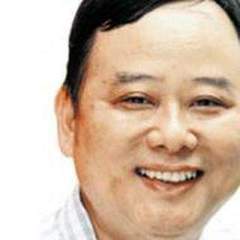Jiang Zemin who deepened China's reform and opening up dies at age 96
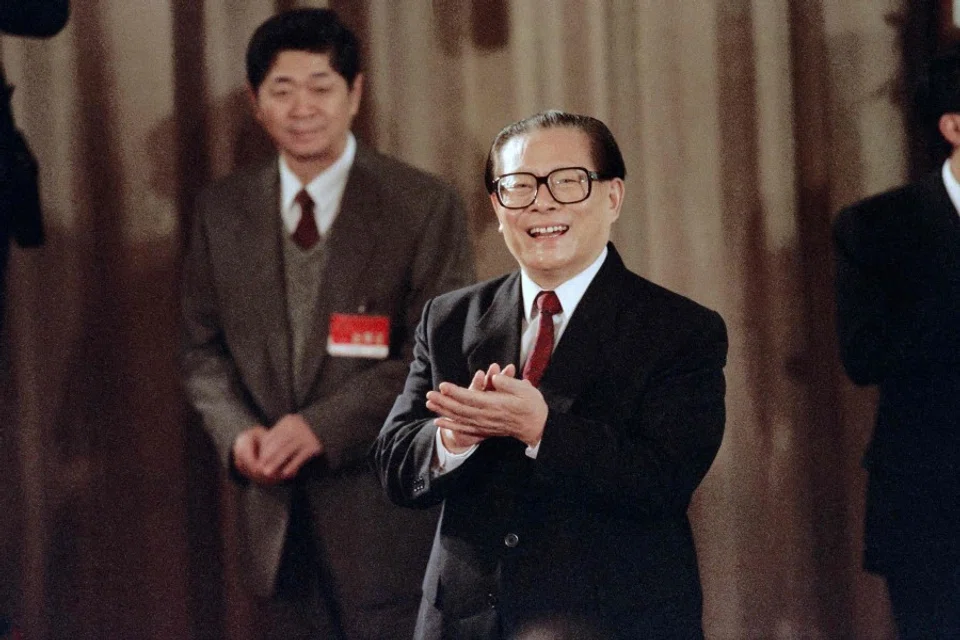
Following many previous false reports of being critically ill or even dead, Jiang Zemin has passed on aged 96. As the next former Chinese president to pass on since Deng Xiaoping in 1997, Jiang is expected to receive the highest honours from the authorities in 20 years. (NB: It was later announced that flags will be flown at half-mast at key locations and mourning halls will be set up.)
Jiang went through the tumultuous Chinese Communist Party (CCP) revolution, China's nation-building, and many political movements. But in the era of "class struggle", the graduate of Shanghai Jiao Tong University who studied in the West was not highly regarded. Like many other senior officials who were part of the intellectual elite, Jiang's moment to shine only came following reform and opening up in 1978, when he was in his fifties.
In June 1989, amid an anxious atmosphere following the quelling of unrest, Deng Xiaoping chose Jiang - who was not a Politburo Standing Committee member - to be CCP general secretary.
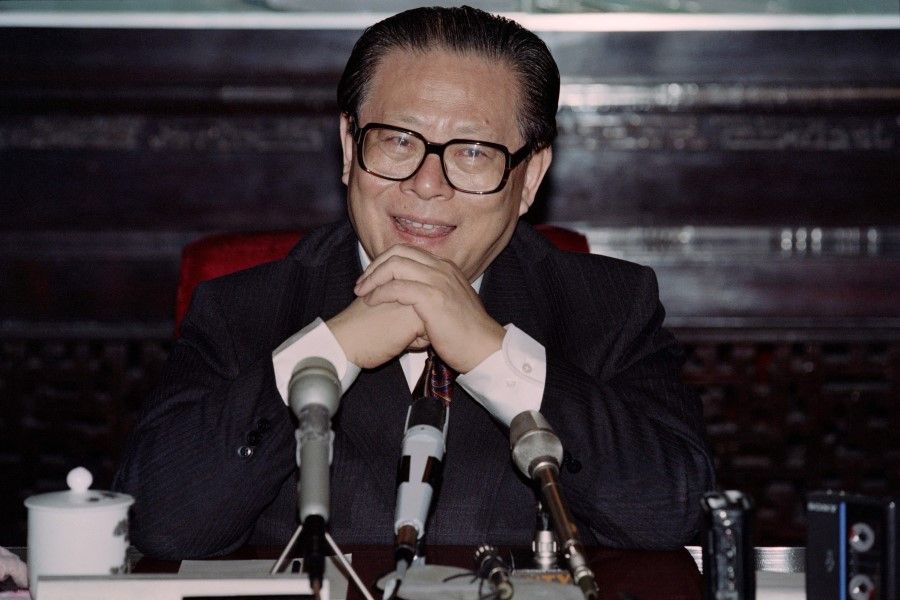
In 1980, the 54-year-old Jiang was the vice-chairman and secretary general of the State Administration Commission on Import and Export Affairs Commission, working under CCP Secretariat member and Import and Export Commission head Gu Mu. In 1982, Jiang became vice-minister, then minister of electronic industries; in 1985, under the recommendation of CCP General Secretary Hu Yaobang and Gu Mu, Jiang became Shanghai mayor then party secretary; in 1987, he was elected to the Politburo at the 13th Party Congress, a major step in his career.
... Deng used his own authority to pave the way for Jiang, proposing the idea of a third-generation core leader for the CCP and moulding Jiang into the role...
A politician who rose to the occasion
However, just over a year later, Jiang made another major step. In June 1989, amid an anxious atmosphere following the quelling of unrest, Deng Xiaoping chose Jiang - who was not a Politburo Standing Committee member - to be CCP general secretary. Deng's main criteria was choosing someone with the right image to carry on the policy of reform and opening up, and he clearly thought that Jiang was better suited for this than other Politburo Standing Committee members.
Deng was well aware that as someone who did not get to the top in the usual way, Jiang lacked the necessary authority. And so, Deng used his own authority to pave the way for Jiang, proposing the idea of a third-generation core leader for the CCP and moulding Jiang into the role, urging the new CCP leadership from day one to hold Jiang as that core figure, and to "be highly aware in understanding and handling this issue".
Given Deng's authority, Jiang made it through his initial period as China's top leader. At the 14th Party Congress in 1992, Jiang proposed establishing a socialist market economy, a major breakthrough for the CCP in breaking free of traditional ideology and moving into the market economy. By the time Deng passed on in February 1997, Jiang was well familiar with his roles as CCP general secretary, chairman of the Central Military Commission (CMC), and Chinese president, and had taken care of the various forces within the party and the military. The 15th Party Congress in September 1997 marked Jiang truly becoming the core of the CCP leadership in the post-Deng era.
... he withstood pressure from various quarters and firmly advocated China joining the World Trade Organization (WTO), laying an important foundation for China deepening its reform and opening up and maintaining rapid economic growth...
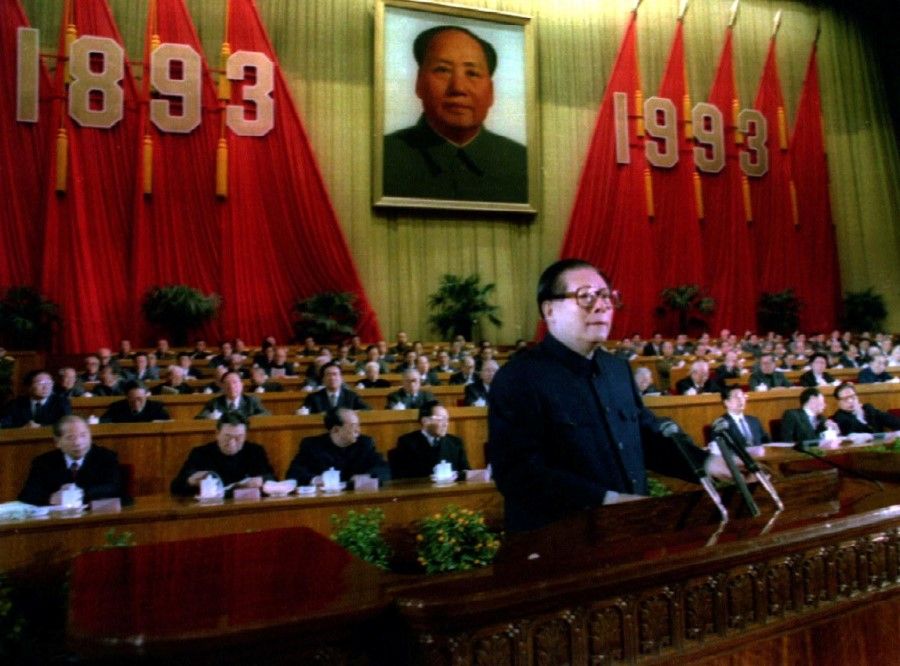
After the 15th Party Congress, Jiang - by then in his seventies - marked several major achievements. First, he successfully navigated the 1997 Asian financial crisis and the 1998 floods; second, he withstood pressure from various quarters and firmly advocated China joining the World Trade Organization (WTO), laying an important foundation for China deepening its reform and opening up and maintaining rapid economic growth; third, he supported Premier Zhu Rongji in strongly pushing reform of state-owned enterprises, allowing many that did not adapt to the market economy to go bankrupt and close, while effectively resolving a possible social crisis stemming from 20 million state employees being redeployed or laid off; fourth, he proposed the "Three Represents", for the CCP to represent advanced productivity, advanced culture and the interests of the Chinese people.
Passing of the baton
Among the above achievements, while the Three Represents seems abstract, its significance lies in expanding the social base of the CPP under new historical conditions to solidify the party's rule. For example, under the framework of the Three Represents, private businessmen were inducted into the CCP, which would have been unimaginable in the past.
This was the first time in CCP history that a peaceful leadership succession was observed, and its historical significance should not be underestimated.
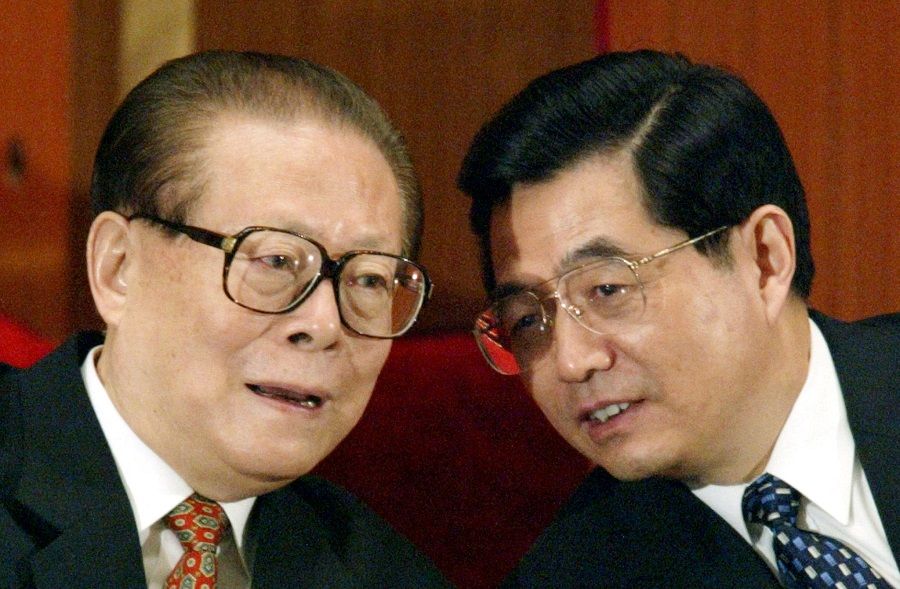
In November 2002, Jiang relinquished his general secretary position to Hu Jintao after the CCP's 16th Party Congress. In March 2003, he also handed over the presidency to Hu in accordance with the two-term limit clause in the constitution back then. This was the first time in CCP history that a peaceful leadership succession was observed, and its historical significance should not be underestimated. But Jiang retained his position as chairman of the CMC, and only stepped down from this role in September 2004.
As Jiang did not relinquish all his positions after the 16th Party Congress, the outside world repeatedly accused him of using the military to control the state. Even after he stepped down as chairman of the CMC, whenever the CCP held important meetings or announced major political reshuffles, the names of Jiang and other party elders would often be used to sensationalise the event. Following the CCP's 18th Party Congress in 2012, Hu stepped down from all his positions and exited the political stage, marking the end of an era for the higher-ups who had been selected during Jiang's era. In particular, following sweeping anti-corruption campaigns led by Xi Jinping and the new generation of leaders, many officials who held senior positions during the Jiang and Hu eras fell from grace, and China's "gerontocracy" gradually faded away.
Role behind the scenes
But Jiang, who had ruled China for more than a decade, did not completely disappear from the public eye. He reappeared as a party elder at the CCP's 19th Party Congress in October 2017, but it was just that the outside world no longer paid attention to his influence on China's political scene.
Apart from his political capabilities, Jiang was also a talented literary enthusiast. He played the piano, guitar, erhu, and dizi...
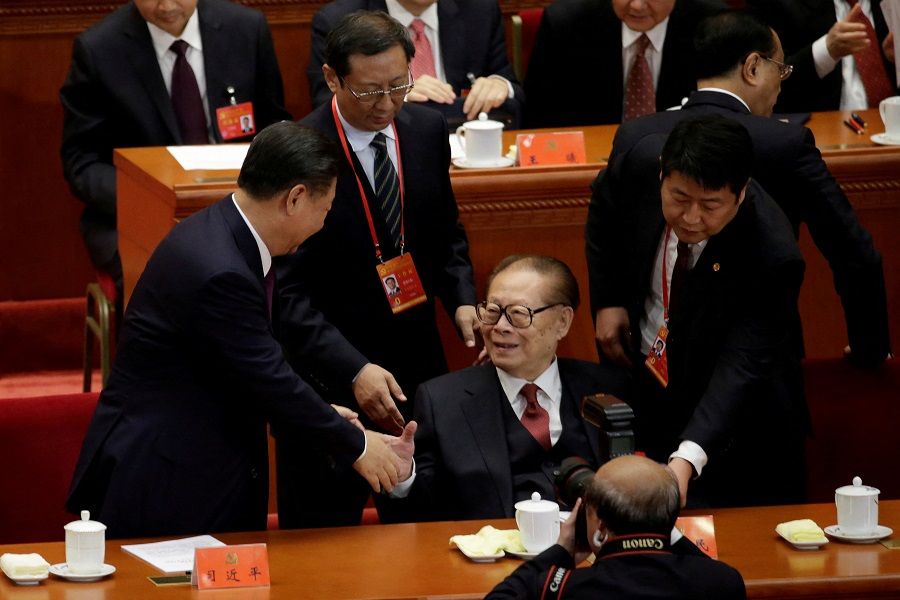
At the 70th anniversary of the People's Republic of China on 1 October 2019, 93-year-old Jiang appeared at Tiananmen Square, the last time he was seen in public. Thereafter, the outside world knew very little about this former top leader, whose name mainly appeared alongside others on wreaths sent to deceased senior cadres.
Apart from his political capabilities, Jiang was also a talented literary enthusiast. He played the piano, guitar, erhu, and dizi; enjoyed singing famous tunes from China and abroad; and watched Peking, Yue, and Kun operas. He also had a flair for languages and spoke fluent English and Russian. On many diplomatic occasions, Jiang's musical talents and language skills have not only won him extra popularity but also changed the stereotypical image of CCP leaders to a certain extent.
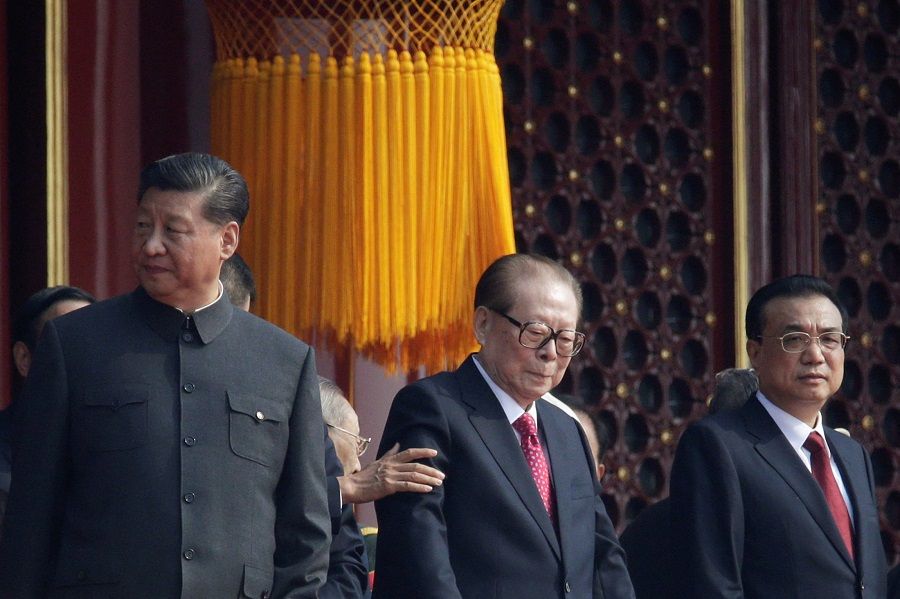
Everyone will die someday, just like heaven and earth will pass away. Once a major player on the Chinese and international stage, Jiang has passed away and also put an end to the rumours about his health. However, Jiang's passing is only the end of his personal history, as discussions and debates about his merits and demerits will continue.
This article was first published in Lianhe Zaobao as "特稿:江泽民谢幕".
Related: Mao Zedong to Xi Jinping - Five generations of CPC leaders | The most outstanding of CCP leaders? | How Xi Jinping consolidated power over the past decade | Xi removes Youth League faction from new leadership | [Party and the man] Ditching presidential term limit an exception not the rule | Death of China's factional politics
